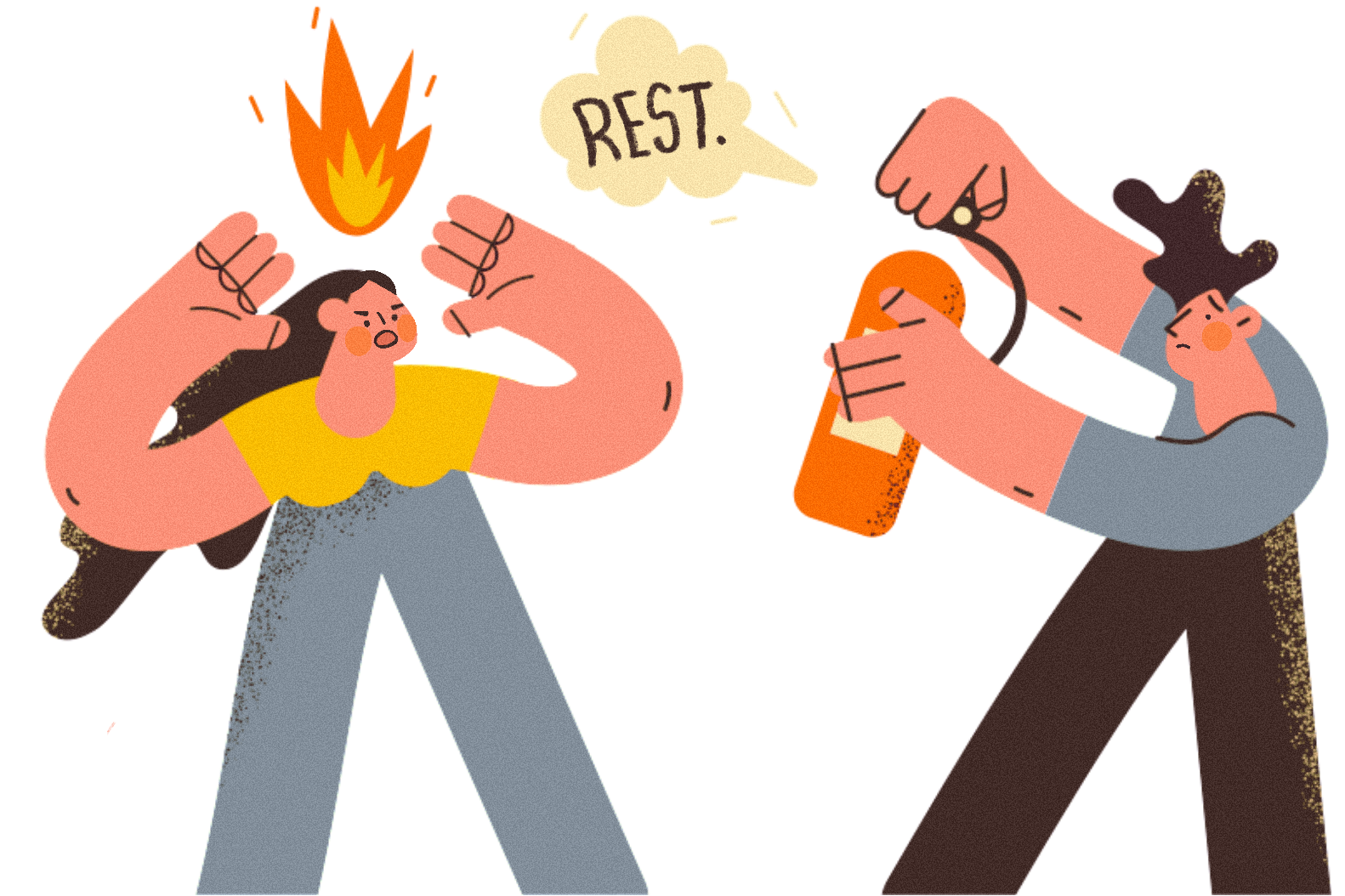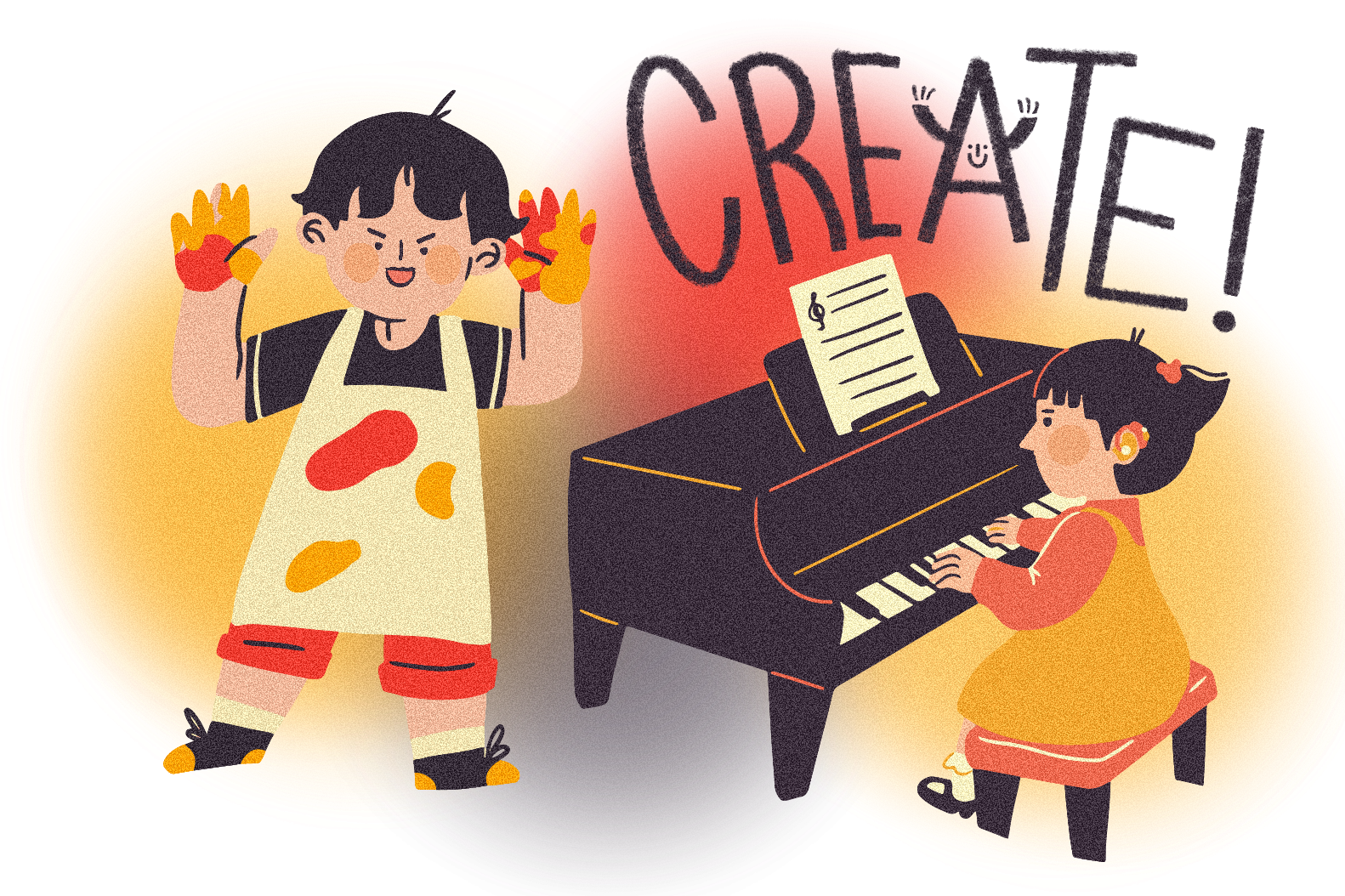Our yard flooded a few times during the recent rainy season. The water was inches from both our front and back doors.
So, I decided to get hold of a pump to get rid of the water, sending it through a hose, over our back wall and into the field behind our house.
The pump worked brilliantly and I left it to do its work, checking on it occasionally.
Our hearts need an outlet or else we’ll burnout.
Going outside again later, I realised nothing was happening. The pump was off. I checked the extension cord.
Then I saw a kink in the hose near the pump. The water couldn’t escape so the pump massively overheated.
A pump needs an outlet for what’s coming in or else it will overheat. Our hearts need an outlet or else we’ll burnout.

We often think of burnout as something that happens due to trying to do too much externally – working too much without adequate rest.
However it’s as much, if not more, about trying to hold too much inside of us.
We weren’t made to keep life’s stuff inside of us. Everything else has an outlet.
We breathe in, we breathe out. We eat… you get the idea.
It’s unhealthy and dangerous to store stuff inside of us.
Our inner being is whirring away with all that stuff churning inside and sooner or later, like the pump, we’re going to burn out.
When there’s something, or sometimes many things, spinning round in our head and heart, letting it out is not just helpful but necessary and a part of how we’re made.
Like our region lately, our lives get some heavy rain. Bursts of difficulties and trials.
Or, more often than not, there are more regular but less severe challenges that in themselves wouldn’t push us over the edge – but they accumulate in our soul over time.
Over the years I’ve seen how unprocessed grief, loss, trauma and disappointment impact my emotional, mental and spiritual wellbeing.
I’ve learned the hard way, the toll of not processing and debriefing stuff along the way but holding it in. We weren’t designed to live without an outlet for our emotions.
So how do we let it out? Here are a few things that seem to work for me.
Talk
We weren’t made to be muted. Being heard has a significant impact on our well-being.
Find people to be real with and be the kind of person others can be real with. Start being honest and encourage honesty in your teams and small groups.
Debriefing for certain events or periods of time is also really helpful.
Counselling helps many of us at different points in our life. There is zero shame in meeting with a counsellor to help us process our emotions and experiences and take healthy steps forward.
Those of us who are often hearing other people’s pain and heartbreaking experiences need an outlet to process the impact this has on our own soul.
That’s why counsellors have supervisors. It’s why we need debriefing and maybe counselling if we’re often walking with others in their sorrow and suffering.
Pray
Praying is different to talking because we’re talking to the One who completely understands, is an ever present help in time of need and who can change situations.
Prayer is far more than a way to process our emotions. We don’t pray merely to get things off our chest, we’re actually talking to God who can and does act on our behalf.
Having said that, prayer does help unburden us as we “cast our anxieties on him because he cares for you” (1 Peter 5:7). We’re invited to pour out our hearts to God (Psalm 62:8).
Prayer can and should get raw and honest as it frequently does in the Bible where we find the full range of human emotion expressed.
Write
I’m increasingly turning to writing whether it’s a journal, a notebook or the Notes app on my phone.
What are we anxious about? How do I feel about what they said or did? What’s hardest at the moment?
It’s not just for the “deep” stuff though.

What don’t we want to forget? What would we like to say at that upcoming meeting or write in that email?
Write it all down. It helps me not to ruminate on it when I’d rather be doing something else. And if we need to go back to it, we have a record.
Weep
This can just happen sometimes due to sorrow, feeling overwhelmed, receiving kindness or being moved by the suffering of others.
When it does, let the tears flow.
We knew one couple who would sometimes put on a movie they knew would make them cry as an outlet for the accumulated stress and challenges they were facing.
It’s true that some people cry more easily than others and that’s fine.
However, it is a healthy, God-given outlet for our emotions that some of us unfortunately prefer to avoid out of shame.
There’s a lot of weeping in the Bible but not enough in the church these days.
Laugh
I need to laugh more, I suspect you do too. It’s another built-in outlet for our emotions and its benefits are wider than I realised.
Laughing relieves stress, releases endorphins (a natural feel-good chemical), boosts the immune system, strengthens relationships and more. Children laugh a lot more than adults.
Some of us are working in contexts where there’s a lot of suffering and where life is a daily struggle – such people are even less likely to laugh. We may even feel it’s wrong.
But there is an appropriate place for laughter just as there is for weeping (Ecclesiastes 3:4).
Look out for something funny and enjoy it, preferably with others.
Create
God’s boundless energy and joy erupted in creation.
Creativity is an outlet for the emotions and is simply satisfying.
My artwork wouldn’t make it to the children’s art competition at the local church fete but I can do other creative things and so can you.

Whether it’s music, painting, dance, photography, knitting, sewing or woodwork. We’re not made to just consume but also to create.
Also, whether we draw or paint well or not, visually representing our thoughts and feelings can be another helpful way to get stuff out of our head.
Exercise
It’s well known that exercise helps relieve stress and decreases overall tension. It acts as a release valve for stress along with its other benefits.
I’ve found it helps me think better too. Tangled thoughts seem to come unravelled.
Numerous times I’ve hit an impasse when preparing a sermon and going for a run has helped things click.
Worship
We are made to worship, to express ourselves before God in thanksgiving, praise and dependence on Him – to let out a response to who He is and what He has done.
If we do not worship God, we worship other things to our great harm and the denial of what rightly belongs to Him.
“I need to worship because without it I can forget that I have a big God beside me and live in fear. I need to worship because without it I can forget his calling and begin to live in a spirit of self-preoccupation. I need to worship because without it I lose a sense of wonder and gratitude and plod through life with blinders on. I need to worship because my natural tendency is toward self-reliance and stubborn independence.” – John Ortberg
Have boundaries
This is less an activity and more a lifestyle choice.
I put the pump in a wicker basket which acts as a filter for the dirt, leaves and rotting fruit in the water. Otherwise, the pump will get clogged and overheat.
We need to filter what and how much we’re allowing into our lives.
A lot of stress in life is outside of our control. But not all.
We were not made to absorb so much data, so many opinions, ideas and images as many of us are doing.
We were not made to absorb so much data, so many opinions, ideas and images as many of us are doing.
We can, most of the time, choose what we consume online or what we watch. Put in some boundaries. Mute or unfollow some people.
Check social media only at set times and never first thing in the morning and last thing at night.
Your soul will thank you for it.
My own experience shows that flipping between tabs, emails, social media and YouTube doesn’t just mess with my focus.
It overloads my head and heart with even more stuff to process, and it’s all jumbled up as well.
What else do you find helpful? Share it in the comments.
And finally, what happened to the pump? After some much needed rest to cool down, it’s working fine again!
This article was first published on Alex Hawke’s Burning Hearts Facebook page, a ministry aiming to encourage believers to live lives that are fervent, faithful, focused and free – not to be confused with the Burning Hearts worship and prayer room in Singapore. Different, but also awesome!
- Imagine your life is a pump. What are some ways you would know you were getting overheated?
- Take some time to sit before God and examine your life. Have a debrief with Him to see how it’s been going.
- Based on Alex’s tips, ask God to show you what are some ways you might have an outlet for your heart.
- Know someone who’s facing burnout? Share this article with them.










